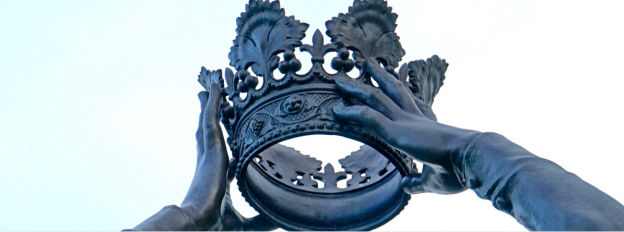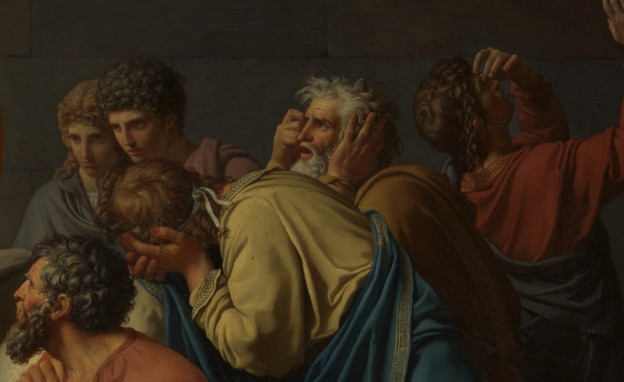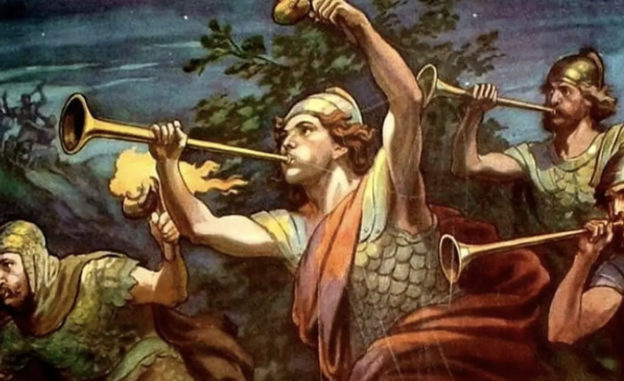History provides a sense of context and place. It helps explain why things are, how they came to be, and where we came from. This is why history can be such a contentious topic, why people propose competing views and interpretations of history, or seek to forget or remake it for their own ends.
In our second look at Jephthah’s role as a Judge over Israel, we see the importance of history in the conflict between Israel and Ammon. Ammon promotes a revisionist history of the settlement of Israel, which Jephthah corrects, showing God’s goodness towards his people in giving them their land. This passage reminds us that God’s goodness to his people is a history we should all learn, especially in a pagan world which would rather revise or forget.
After Jephthah’s appointment by Israel’s elders, orchestrated by God, Jephthah could turn his attention to the Ammonite threat. Jephthah sent messengers to Ammon, asking why they were attacking Israel (v.12).
The answer from Ammon’s king was a piece of revisionist history: “because Israel on coming up from Egypt took away my land, from the Arnon to the Jabbok and to the Jordan”, so they should hand it back (v.13).
Jephthah’s response begins with a correction of this history. First, he points out how when Israel left Egypt and their wilderness wandering, they asked permission from Edom and Moab to walk through their territory which was declined (vv.15-17). Instead of attacking, Israel walked around both territories (v.18).
Then when Israel came to the Amorite lands and asked permission to cross their territory, the response was not a permission declined but an attack by Sihon king of the Amorites and his forces (vv.19-20). God gave the Amorites over to Israel’s hand, so “Israel took possession of all the land of the Amorites” (v.21-2).
These corrections to the factual record raised various problems with the Ammonite king’s argument. Firstly, while he was claiming the land in dispute (v.13), it belonged to the Amorites first, who then lost it to Israel when God drove them out (vv.21-3). They could not claim what was not theirs in the first place.
Secondly, it was God that drove out the Amorites (v.23) and gave it to Israel to possess (v.24). Israel was not claiming anything that wasn’t theirs by divine gift from God. Ammon should be content with the land they had been given, supposedly as they thought by their false god.
Thirdly, while Balak the king of Moab saw Israel as a threat due to their proximity to his lands, he did not fight them to drive them out of lands which were his, or he claimed were his (v.25). If Balak had that sense, then the Ammonite king ought to follow suit.
Fourthly, Israel had lived in the lands in question for 300 years, yet only now did the dispute arise (v.26). If this was an issue that meant conflict now, why not earlier?
For these reasons, it was clear that Ammon was reinventing history to cause conflict (v.27). Jephthah called on “The LORD, the Judge, [to] decide this day between the people of Israel and the people of Ammon” (v.27), as the only true judge of what was right history and alternative facts.
Unfortunately, the king of Ammon was not interested in the facts (v.28) when it interfered with his agenda.
If Jephthah had been ignorant of his history, and of God’s goodness, he would not have been able to rebut Ammon’s arguments with objective truth. Thankfully, Jephthah knew the history of his people and of God’s leading and gifting. He could rely on God to judge, because he knew that God had given them the land in question and would decide for them.
That history is our history too. The history which Jephthah recalled forms part of God’s salvation plan, as God prepared for the coming of our promised Messiah Jesus. It is ours to remember, and to see as evidence of God’s goodness towards us.
It also reminds us to learn the goodness of God to us throughout all history. God did not stop being good to us, but continues to this day. The history of the Church is the history of God’s goodness to his people, to build a church which nothing can prevail against.
The Church has been a force for good overall throughout 2000 years of history. Pagan Rome and Europe were not nice places, unless you were male, rich, and powerful. The West’s cultural legacy and ideas like compassion or equality of individuals before God are Christian ideals, not pagan. Sure, the Bible has been used to justify evils like slavery, but also to bring about their demise.
As our culture tries to forget or reinvent this truth to return to its pagan past and uncivilised practices, we should not buy the lies of revisionist history. Instead, we should know and build our lives on the treasures of God’s goodness to us through Jesus, in the past, today, and into the future.



